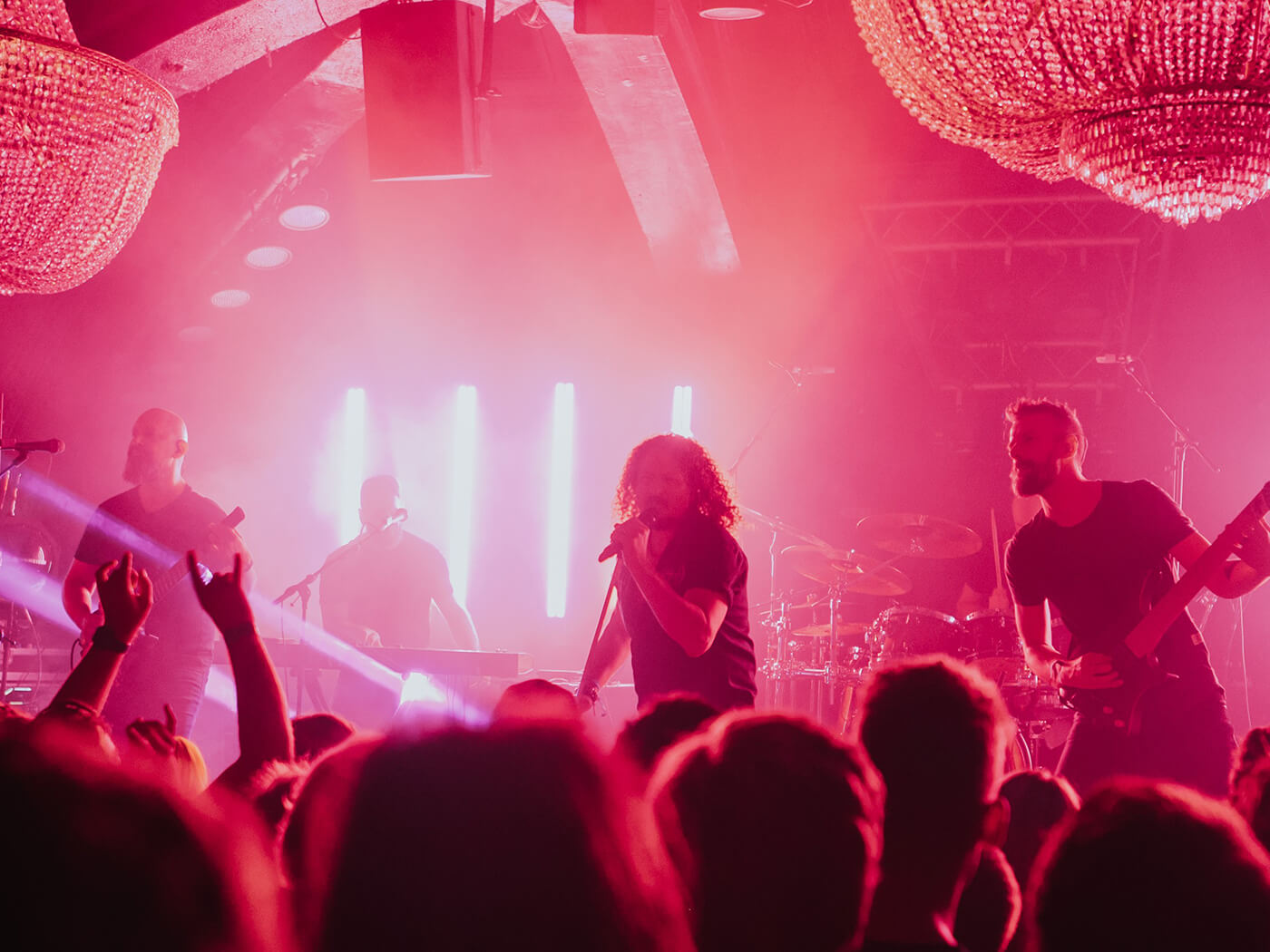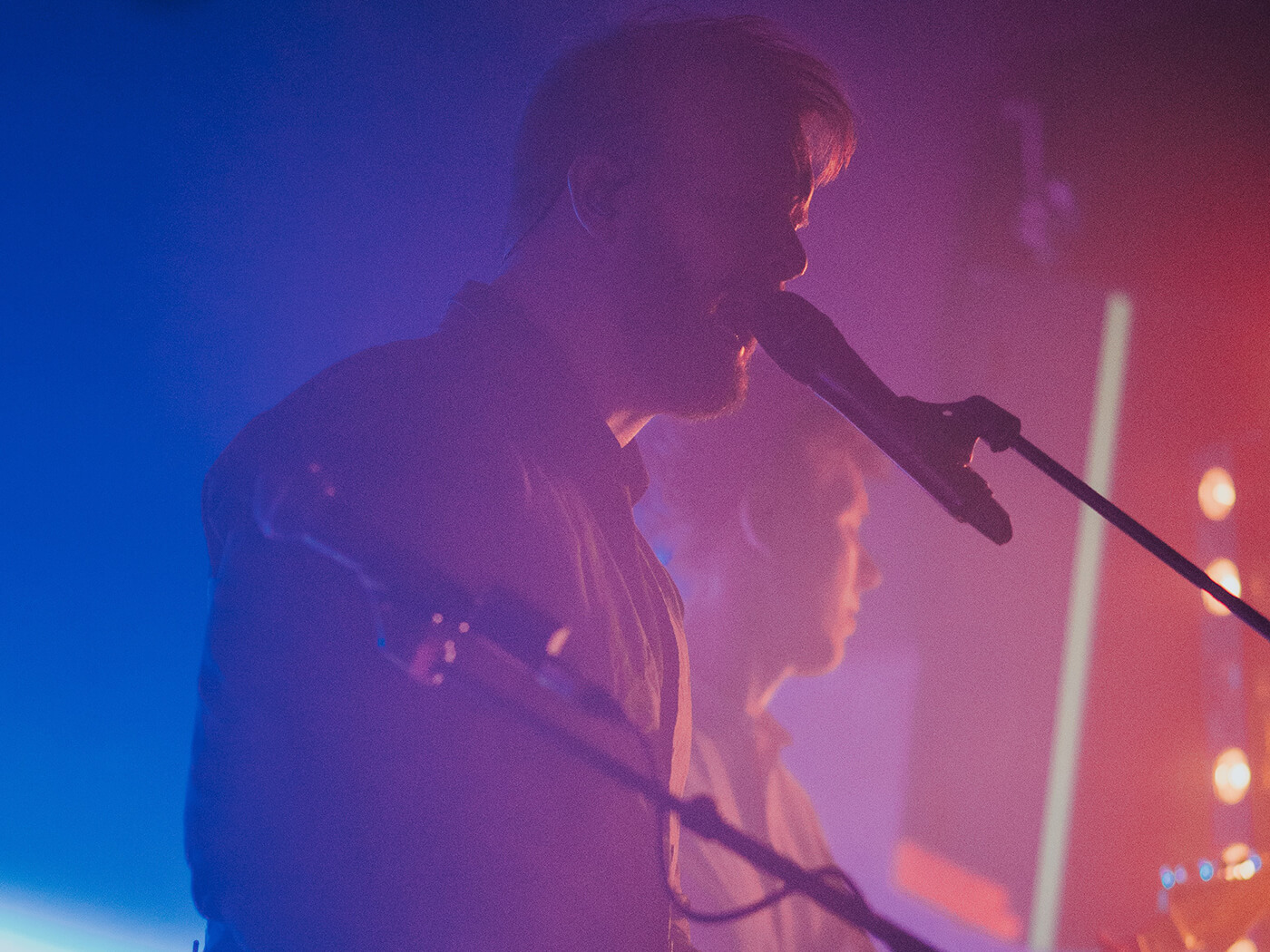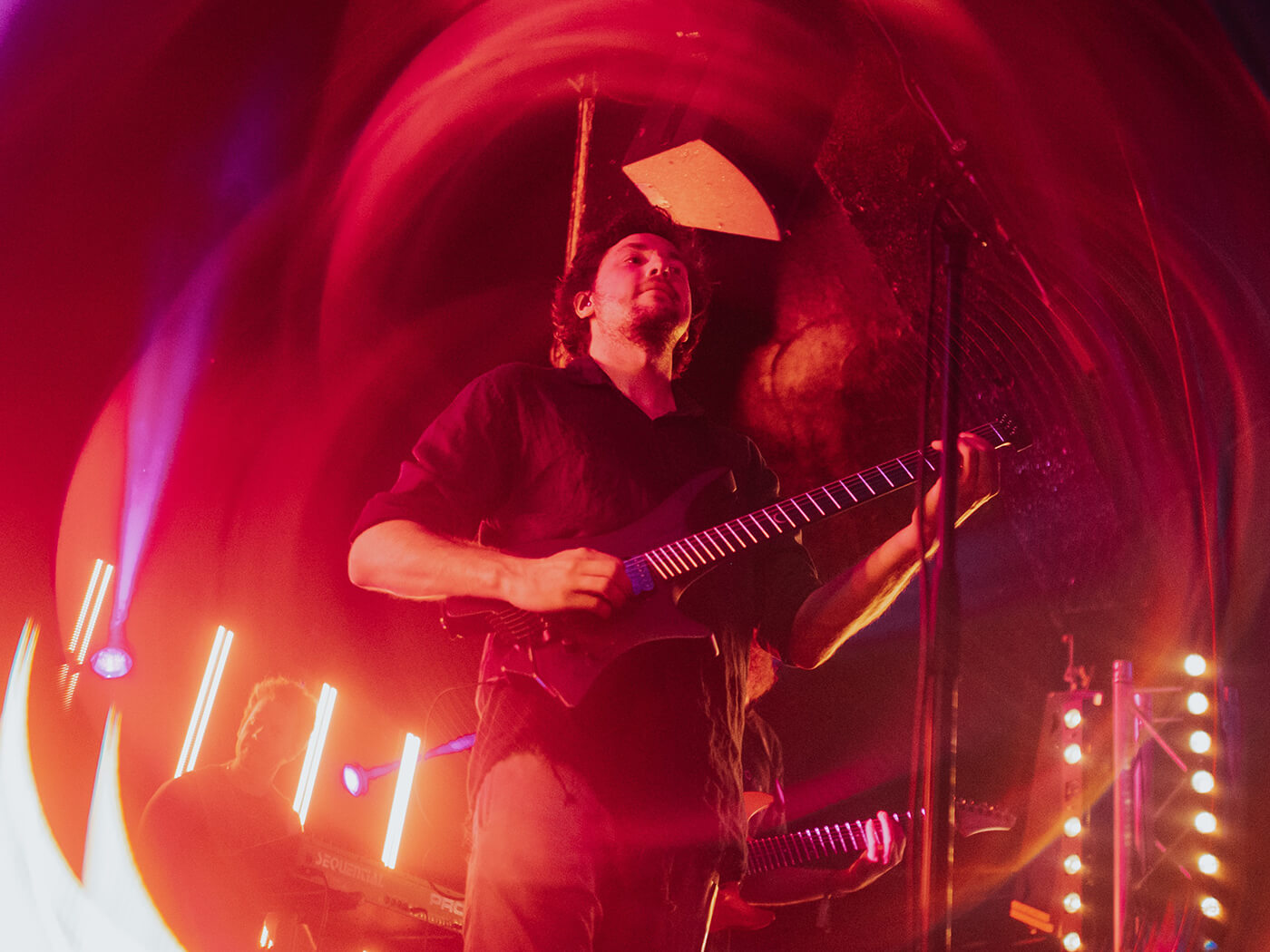Related Tags
Is prog-metal shaping the future of the electric guitar as we know it?
With some of the guitar world’s most creative, forward-thinking and popular players making technical and progressive music, will the 2020s see prog take its place as the primary driving force moving guitar forward, and dare we say it… even becoming cool?

Plini. Image: Charlie Bluck
“Guitar is dead” – we’ve all heard that interminably trite refrain from various cultural organs. Indeed, it’s such a cliche now that people are making jokes about people making jokes about the phenomenon (looking at you, Wet Leg). Whatever the plentiful evidence to the contrary, generally people that say it are perhaps also ignorant to the way that guitar has evolved as an instrument over the decades, and indeed, how many of the most exciting and boundary-pushing things going on in the guitar world are happening in the decidedly not-for-mainstream world of progressive metal. With its tendency to push envelopes and a baked-in appreciation of virtuosity, prog metal is a natural breeding ground for the next big guitar thing.
It only takes a quick perusal of social media to show what we mean – barely a day passes without some young thing posting a clip of such phenomenal feats of technical ability that it has the virtuosic benchmarks of yesterday – Vai, Satch et al – slack jawed in amazement at the boundaries of physical agility these players are pushing. But there’s one thing that pretty much all the biggest names in this new wave of technical boundary pushers have in common – Tosin Abasi, Plini, Tim Henson, Angel Vivaldi, Manuel Gardner Fernandes et al – they all, on some level, are playing progressive metal. Most shocking of all, they might actually be making the genre something it hasn’t ever been – fashionable.

Cool Kids
Suffice to say, there’s not a lot of capes in modern prog-metal – instead what we have is a legion of young, vibrant and diverse musicians, many of whom have fashion chops as razor-sharp as their legato technique. These players are more than just good, they’re cool, and like all cool things, eventually the hip kids of prog-metal have begun to cross over into mainstream culture.
You may remember the last year’s storm of controversy when pop idol Doja Cat’s musical director sampled part of a Plini song for her performance at the MTV EMAs – but the really remarkable thing about it was that one of the hottest stars in modern pop wanted to rework her breezy chart-topping summer anthem into a prog metal tune.
It’s not an isolated incident either – grime god Stormzy bringing on YouTuber and shred king Rabea Massaad to perform with him as he headlined Reading and Leeds last year. Now, guitar players have always been used to give a bit of musician cred to artists that don’t have a lot of live elements on stage when performing big gigs, but prog guys? That’s new.
And it’s not like many of these players need the exposure either – prog metal’s leading lights can now command huge online audiences that will buy their merch, their music, their plugins and their signature gear.
What’s more, we’re even seeing a number of festivals emerging worldwide specifically celebrating the feats of modern-day technical musicianship, including Techfest – who’s headliners this year were the Per Nilsson fronted outfit Scar Symmetry – and Radar Festival,who in 2023 host two of the modern day titans of progressive music – Periphery and Haken.
“To me, as a guitarist, these bands represent the majority of reasons why I write and play the way I now do. As a predominantly self-taught musician, there was only so far I could go with more traditional progressive rock and metal and learning by ear and tabs. Periphery actually changed my approach to guitar” says Ashley Cook, organiser and co-founder of the Radar music festival who in its third year has moved to a venue treble its previous year’s capacity; a testament to increasing popularity of the genre.

Bringing The Scene Together
The importance of these festivals can’t be understated. It’s all well and good these artists having huge communities built around themselves online, but by bringing them together in a physical place and sharing their audiences with other like-minded acts, it’s carving out a place that simply hasn’t existed before.
Until recently, prog-metal acts would likely be lumped in with metal festivals, or prog festivals, despite not always having a huge amount in common with many of the other acts on the bill – particularly in the prog scene. Where ‘prog’ music often features everything from flutes to keyboards and synths leading the way, prog-metal is a guitar genre in the most pure sense.
“I would say so yeah, wider prog is definitely more guitar led at the moment that ever” says Ashley. “Sure, Haken have keyboards but then you have bands like Humanity’s Last Breath where the guitarist plays upside down like Jimi Hendrix, although he never actually learnt to play it the traditional way. That gives them their unique sound. And then you look at newcomers to the festival like Connor Kaminski; he’s this jazz fusion player on a Strandberg, who has incredible phrasing, really crushing heavy tones and then incredible cleans. I think it’s a really dynamic instrument, and that’s what makes it the lead instrument in prog”
But this changing of the guard has an accomplice: drums. And together they seem intent on breaking up that once inextricable bond between drums and bass, with bands such as Meshuggah having paved with way for drums to be just as important a writing tool
“Guitars and drums, I think their relationship has gotten a lot closer over the years” agrees Ashley. “For me on my personal musical projects, writing into Guitar Pro has allowed me to understand drums more, and as a result I think I write more intricate music having a better understanding of more than one instrument. You look at a lot of our line-up last year and in there were a couple of them what we would have derogatively called ‘bedroom djent’ guitarist 5-6 years ago. Now some of them are doing extremely well because they can write guitar, bass and drums and they can hire a band to play that material”

The Push and Pull
There has always existed a symbiotic push-and-pull between prog-metal guitarists and guitar manufacturers that has led to improvements benefitting players of all genres, not just prog metal. The progress of technical ability especially has always pushed technology. Whereas, say in the era of EVH, if the equipment isn’t able to bend itself to the will and imagination of the artist then players like EVH and Steve Vai would pick their own tools and forge their own solutions. These days, where information flow between artist and manufacture is more fluid, and manufacturing techniques have evolved to a point where if you can think it then you can do it, novel new designs have emerged such as extended range and fanned-fret 8-strings. Even when they are not the innovators, it is generally progressive metal pioneers that are the early adopters of new designs and some of the most recent innovations in guitar making – companies like Strandberg – were first found in the hands of progressive players such as Tosin Abasi and Misha Mansoor.
The same can be said of the opposite end of the guitar lead. Granted, digital modelling technology wasn’t something forced by the modern-day shredders but, once again, they were its early adopters. Those old enough to remember the emergence of Fractal Audio’s first digital modeller will recall that its first endorsees were predominantly metal guitarists, yet these days you’re not surprised to hear that artists such as Pat Metheny are taking to stage with digital modellers and we seem to be getting closer every year to the day when amps are no longer a fixture of live stage set-ups.
“I think unless you’re playing an arena where the PA is the top PA you could possibly get, you’d be hard pressed to know the difference between digital and more analogue setups,” says Ashley – who should know what she’s talking about. “It’s been interesting to see the bands that have moved to digital; it’s easier for touring. I’d probably say it was about 80 per cent modellers.
“Take Vola for example. They played our festival in 2019 and enroute all their gear got lost. They put up a post just saying like ‘What we need is XYZ’, then they just connected to the internet where they re-downloaded all their patches and off they go. Whereas if it was someone with a more traditional setup, hopefully they’d probably have to take a photo of how they left the dials on their amp, and they’ve got to try and source potentially up to 10 different pedals depending on their setup”
There seems to be a little resentment toward those currently beginning to dominate the scene. Steven Wilson is an outspoken adversary of those of a technical persuasion, often describing these players as being devoid of feel and playing fast for the sake of it. Although the irony of his enlisting some of the most technically gifted players out there perhaps being lost on him.
“I like Steven Wilson’s music, but I don’t agree with it,” Ashley explains. “If you were doing music to show off that you’ve mastered your instrument, then you’re doing music for the wrong reasons, and that’s I think more of an issue than just about saying whether music should be as technical as possible or not. I mean, for some of the bands that we had on the line-up, some people might argue why are they on the bill as they’re not ‘prog’. But for me, you know, prog isn’t playing as fast as you can or fitting in as many notes as you can; it’s a whole host of borrowing things from other genres, or doing something slightly different, slightly original”

Taste test
Does Steven have a point though? Aren’t we all just a little self-absorbed when it comes to guitar. Isn’t this kind of music more in line with the taste of musicians than music lovers?
“I think there’s probably a balance of both,” Ashley reflects. “Catherine and Joe, who co-organises the festival, don’t play instruments. I know Catherine puts on gigs herself. Joe, I know one of his favourite bands is Periphery but he has often said he feels like some songs are filler. And as Periphery are probably in my top five at the moment, I kinda feel like if he did play guitar he might have a slightly different opinion! Not to say that he’s wrong, but I’m saying if he had an understanding of the work that went into behind some of the songs that he doesn’t like, for whatever reason, he might appreciate it more.
“I think the crowd that initially started off as our wider circle of friends who are a mixture of musicians and non-musicians, some people were quite happy listening to music and letting it affect their mood, affect their feelings, help them create memories. Other people want to learn that music, learn the details behind it and create their own.
“It’s a tough one because I’ve seen at other festivals, some I’ve played, where I’ve walked offstage and people are asking me what string gauge am I using rather than congratulating me on the set or whatever. And there’s definitely not as much of that at Radar; it’s definitely kind of, you know, you’re there to enjoy the music as a fan, whether you’re a musician or not”
Find out more about Radar Festival at www.radarfestival.co.uk
